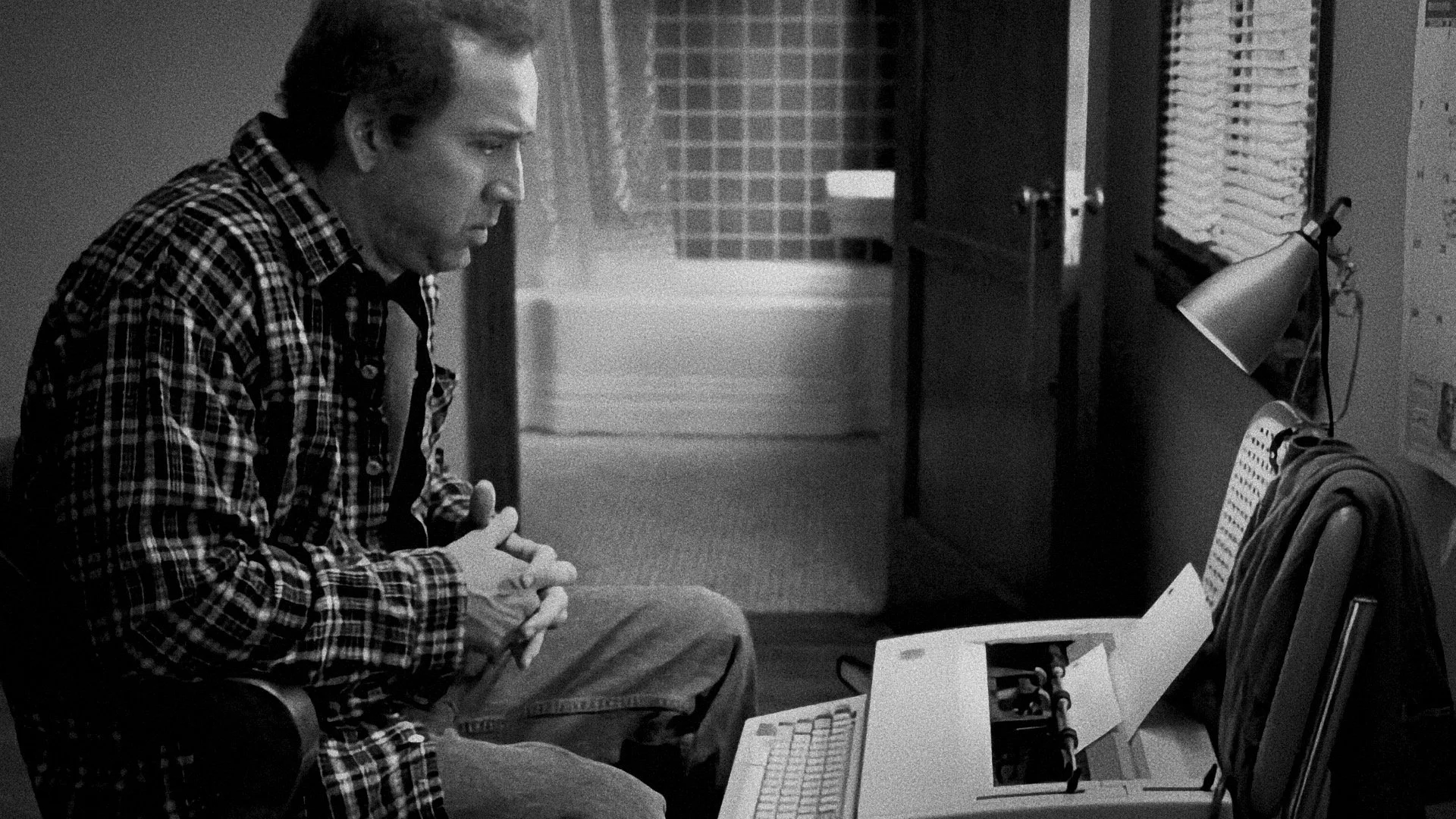Adaptation (2002)
»Adaptation« is a genius metafictional film directed by Spike Jonze and written by Charlie Kaufman. Released in 2002, the film is a unique exploration of the challenges of adaptation, the creative process, and the blurred boundaries between reality and fiction.
The film follows the eccentric screenwriter Charlie Kaufman (played brilliantly by Nicolas Cage) as he struggles to adapt Susan Orlean's non-fiction book »The Orchid Thief« into a screenplay. As Kaufman navigates through creative blockages and personal insecurities, the film not only presents a reflection on the adaptation process but also delves into themes of self-doubt, identity, and the search for personal fulfillment.
One of the central themes of »Adaptation« is the examination of the creative process itself. The film cleverly dissects the struggles and anxieties faced by artists when attempting to adapt someone else's work. Kaufman's character represents the tortured artist, constantly battling his own insecurities, questioning his abilities, and wrestling with the pressure to deliver a successful script. The film explores the complexities and paradoxes that arise when attempting to translate a book's essence into a wholly different medium, an experience that many writers can relate to.
In addition, the film also plays with the idea of identity. Kaufman's fictional twin brother, Donald (also played by Nicolas Cage), becomes a catalyst for exploring the themes of self-acceptance and the desire for validation. Donald's contrasting approach to storytelling and creative success challenges Charlie's beliefs and forces him to confront his own limitations and insecurities. This examination of identity draws attention to the struggle between conforming to societal expectations and embracing one's unique voice and perspective.
»Adaptation« is also a self-referential exploration of film itself. As Kaufman navigates the complex narrative structure of his screenplay, the film delves into the tropes and conventions of storytelling, breaking the traditional boundaries of linear narratives. The film embraces the concept of metacinema and blurs the lines between reality and fiction, leading to an unconventional climax that upends audience expectations. Through this approach, »Adaptation« challenges viewers to question storytelling norms and pushes the boundaries of the medium.
Visually, the film employs a dynamic and creative style of cinematography. Spike Jonze seamlessly blends various visual techniques, ranging from handheld cameras to split screens, to enhance the storytelling and reflect the fragmented nature of Charlie's mind. These stylistic choices contribute to the film's overall portrayal of the complexities of creativity and adaptation.
The performances in »Adaptation« are exceptional, with Nicolas Cage delivering a remarkable dual portrayal of Charlie and Donald Kaufman. Cage perfectly captures the contrasting personalities of the two characters, providing nuance and depth to the narrative. Meryl Streep delivers a nuanced and captivating performance as Susan Orlean, grappling with her own insecurities and desires. Chris Cooper also shines as John Laroche, the eccentric orchid thief whose story becomes entwined with Charlie's adaptation.
In conclusion, »Adaptation« is a brilliantly crafted film that delves into the intricacies of adaptation, the creative process, and the existential struggles of an artist. Through its self-referential storytelling, exploration of identity, and examination of the boundaries of film, the movie challenges conventional norms and offers deep insights into the complexities of human nature and artistic expression. »Adaptation« remains a standout film that encourages audiences to embrace their unique voice, question societal expectations, and find personal fulfillment in the creative process.

